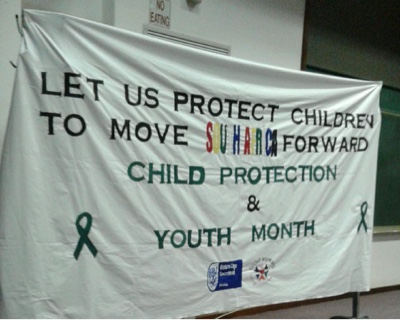Make your School Improvement Plan a living document for everybody at the school.
The online School Improvement Plan (SIP)
Before the end of the third term, the Western Cape Schools should have completed their online DRAFT School improvement plan (SIP) for 2016. The online SIP includes a school-self evaluation component and an Action plan.
The online SIP was introduced about three years ago as a systems-planning tool for schools, education districts and the provincial education department. Schools are required to complete certain components of their SIP 2016, one of which is the ACTION plan by the end of the third term. The online SIP will then be signed off and accepted in January 2016, after input from the IMG Manager.
Schools are alienated from their own SIPS
Most schools usually rush to complete their online Draft SIP as a last minute exercise. In their haste to comply, many schools do very little or no consulting with their other stakeholders like their teachers, support staff and parents. This oversight is especially evident when we discuss the academic targets with the SMT and teachers. These important school planning documents should also be presented to their School Governing Bodies (SGBs).
The online SIP may have made monitoring and evaluation easier for the district and for Province, but it has not helped schools galvanize their efforts around an inclusive, shared SIP. Many schools have not embraced the electronic SIP as a key planning document. At many schools, teachers are involved in setting the academic targets they have to project only. This limited involvement makes it difficult for the SIP to be a shared improvement plan.
School improvement goes beyond academic targets. The Action plan of the SIP focuses on basic functionality, human and physical resources, parent and community involvement, safety and security as well as infrastructure. All the teachers and the SGB should also participate in the development of action plans and take responsibility to make these happen in the new year.
I know schools are going to raise the constant systems pressure that they experience and the pace at which schools are expected to respond to all the systems deliverables. Their concerns are real, but we cannot allow the systems pressures to reduce the SIP to an administrative exercise. Schools need to embrace the online SIP and find ways to make the tool work for them.
Embrace the SIP as a developmental tool for the school and its community.
How then, can schools manage the development of their SIP so that all their key partners have a say and have access to the SIP?
Here are two strategies schools can employ:
1. Use the DBE's School Self-evaluation instrument.
Since the online SIP will be in draft form until the end of January, 2016, the school can use that information to make the online SIP 2016 a realistic blueprint of the school.
2. Provide each staff member with an EXCEL version of the SIP.
Often schools would have populated the online SIP before teachers will engage the document. Regardless of this, teachers need to see the draft SIP so that they can assist in developing their final SIP.
3. Provide the SGB a summary of the SIP at a school governing body meeting so that they know where the school is heading in 2016.
Find ways to make the School Improvement Plan come alive for the school community. If you have ideas on how to make the SIP a shared document, feel free to share them with us.
Happy SIPping!!!!!!



As long as schools view this as a compliance exercise or as an event and not as part of a process for real improvement, the SIP will remain a dead document.
ReplyDeleteI fully agree with you sentiment and your suggestions. What role can IMG's play in making this a reality, since what you are proposing is what is expected in any event.
SMT's. the teachers and SGB's work on little islands - How do we gel them and get the most out of the process?
Hi Kevin
ReplyDeleteThanks for this input. You raise an interesting question about the role of IMGs in helping schools make their SIPS a real working document. Besides the compliance role, the IMGs role is really dependent on how open the Head of the school is to explore creative ways to increase participation of the other role players. We can agitate but it depends on how the School head views the need to make the SIP known to everybody by finding ways to get everybody's voices to be heard.
It is for this reason that I suggest that the DBE SSE document be used as a springboard to get people to engage with all the aspects.
A school head has a huge responsibility to promote communication between the various layers at the school. And you need a strong, passionate team to help you deepen the collaborative cultures at the school. If the SMT is not a strong, visionary group, schools will struggle even more.
These are hard questions and they should be debated and teased out by our school teams. There are no easy answers, but we have to continue driving for more active participation of all parties at schools. It is not only the school head's job to build school communities. Everybody is accountable.
Do continue raising the bar, Kevin. I hope other colleagues will participate in this discussion.
Do pop in again.
Lunch boxes for kids are designed to carry nutritious meals to school or outings, ensuring children have access to balanced, home-prepared food while teaching them healthy eating habits.
ReplyDelete